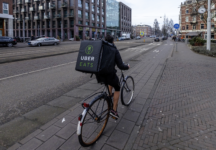Can You Be Found Guilty of Drug Possession for Handling Drugs Without Your Knowledge?

A Sydney UberEats driver recently discovered that the package she was asked to deliver contained crystal methamphetamine.
The driver became suspicious of the package and reported it to police, receiving a one star review from the would-be drug supplier as a result – a review that the company refused to remove.
Here’s how the criminal law would apply to situations where someone is an accidental drug mule.
The NSW Offence of Drug Possession
Section 10 of the Drug Misuse and Trafficking Act 1985 (NSW), outlines the offence of possession of a prohibited drug which carries a maximum penalty of two years imprisonment and/or a fine of up to $2200.
A person will be in ‘possession’ of an prohibited drug if:
- An illegal drug was in their ‘custody’ or ‘control’, and
- The person knew that they had custody or control of a prohibited drug.
If a person is in possession of a “traffickable quantity” of an illicit drug, they may also be charged with various supply offences under the Act, unless they prove the drug was in their possession for purposes other than supply.
A “traffickable quantity” is:
- 300 grams or 5 plants for cannabis.
- 3 grams for cocaine.
- 3 grams for heroin.
- 3 grams for methamphetamine (“ice”).
- 3 grams for ecstasy.
Clearly, in the case of the Uber driver the prohibited drug was in their “custody” – that is, their immediate physical possession. However, the driver did not have knowledge of this custody or control until the package was delivered to police.
To establish “possession”, the prosecution does not need to prove you knew the exact quantity or type of illicit drugs in your possession, but does need to prove beyond a reasonable doubt you had knowledge that a prohibited drug was in your possession, custody or control.
Federal Offences Relating to Importing/Exporting Illicit Drugs
Often when we hear the term “drug mule” we think of a person assisting in the importation or exportation of illicit drugs into or out of Australia.
A number of serious Federal offences apply in cases of the importation or exportation of a “border controlled drug” across national borders.
A “border controlled drug” includes most illicit drugs including cannabis, cocaine, heroin, methamphetamine and ecstasy.
Offences are divided on the basis of the quantity of the drug imported. These include:
- Importing or exporting a border controlled drug under section 307.3 of the Criminal Code Act 1995 (Cth) which carries a maximum penalty of 10 years imprisonment.
- Importing or exporting marketable quantities of a border controlled drug under section 307.2 of the Criminal Code Act 1995 (Cth) which carries a maximum penalty of 25 years imprisonment.
- Importing or exporting commercial quantities of a border controlled drug under section 307.1 of the Criminal Code Act 1995 (Cth) which carries a maximum penalty of life imprisonment.
For these offences, the prosecution must prove beyond reasonable doubt that:
- A person intentionally imported or exported a substance.
- The substance was a border controlled drug or plant at the relevant quantity for the offence (below marketable quantity or marketable quantity or commercial quantity), and
- The person knew or were reckless as to whether the substance was a border controlled drug or plant
An intention to import or export a substance under the Code requires that the person mean to engage in the conduct of importation or exportation, understands the circumstances (that a substance is present) and intends to bring about the importation or exportation of a substance.
Absolute liability applies to the quality and quantity of a border controlled drug imported or exported. This means a person cannot claim that they intended to import or export a different quantity of a border controlled drug or a different kind of border controlled drug or plant.
Recklessness as to whether the substance was a border controlled drug or plant, requires that the person understood that there was a substantial risk the substance was a border controlled drug and it was unjustifiable to take that risk.
In cases where a person is a drug mule without their knowledge, they could argue both that:
- They did not intend to import or export the substances; and/or
- They did not know, nor were the reckless as to whether a substance was a border controlled drug.
Doctrine of Innocent Agency
You may be wondering about potential penalties for the person who organised the UberEats delivery containing methamphetamine.
In circumstances where one person (Person A) uses another, innocent, person (Person B) to commit an offence, the doctrine of innocent agency allows Person A to be charged and convicted for the actions of Person B.
This means that whilst the person who organised the delivery did not directly take part in the delivery of the drugs, they can be charged as if they did the delivery themselves.
Going to Court for a Drug Offence?
If you are facing court over an allegation of a drug offence, call Sydney Criminal Lawyers anytime on (02) 9261 8881 to arrange a free first consultation with a specialist criminal defence lawyer who is vastly experienced in representing clients for drug charges and has a proven track record of producing exceptional outcomes.
Receive all of our articles weekly
Related Articles
RELATED LEGISLATION
- Section 10 Drug Misuse and Trafficking Act 1985 | Drug Possession
- Section 307.3 Criminal Code Act 1995 | Importing or Exporting Border Controlled Drugs
- Section 307.2 Criminal Code Act 1995 | Importing or Exporting a Marketable Quantity of Border Controlled Drugs
- Section 307.1 Criminal Code Act 1995 | Importing or Exporting A Commercial Quantity of Border Controlled Drugs






